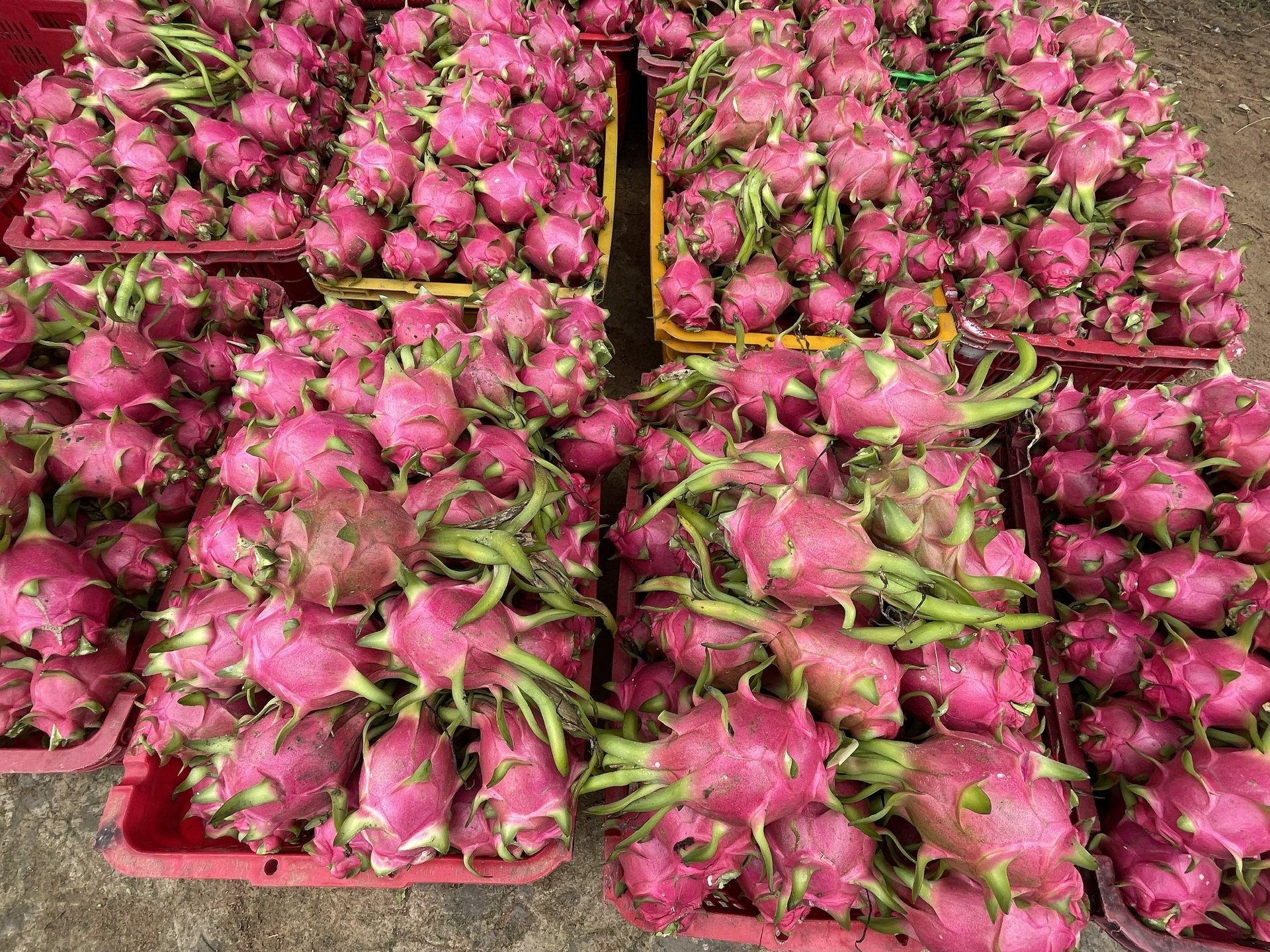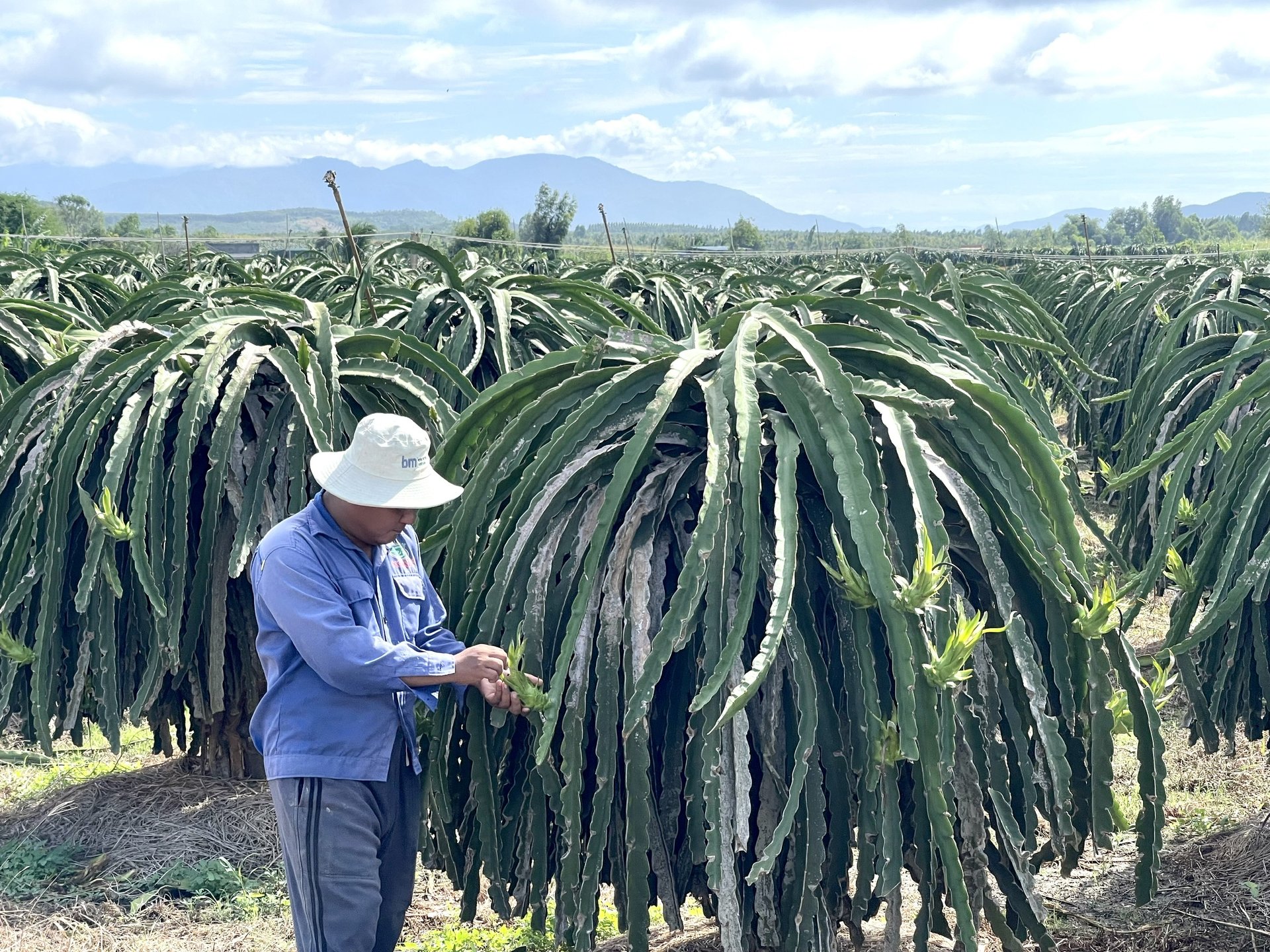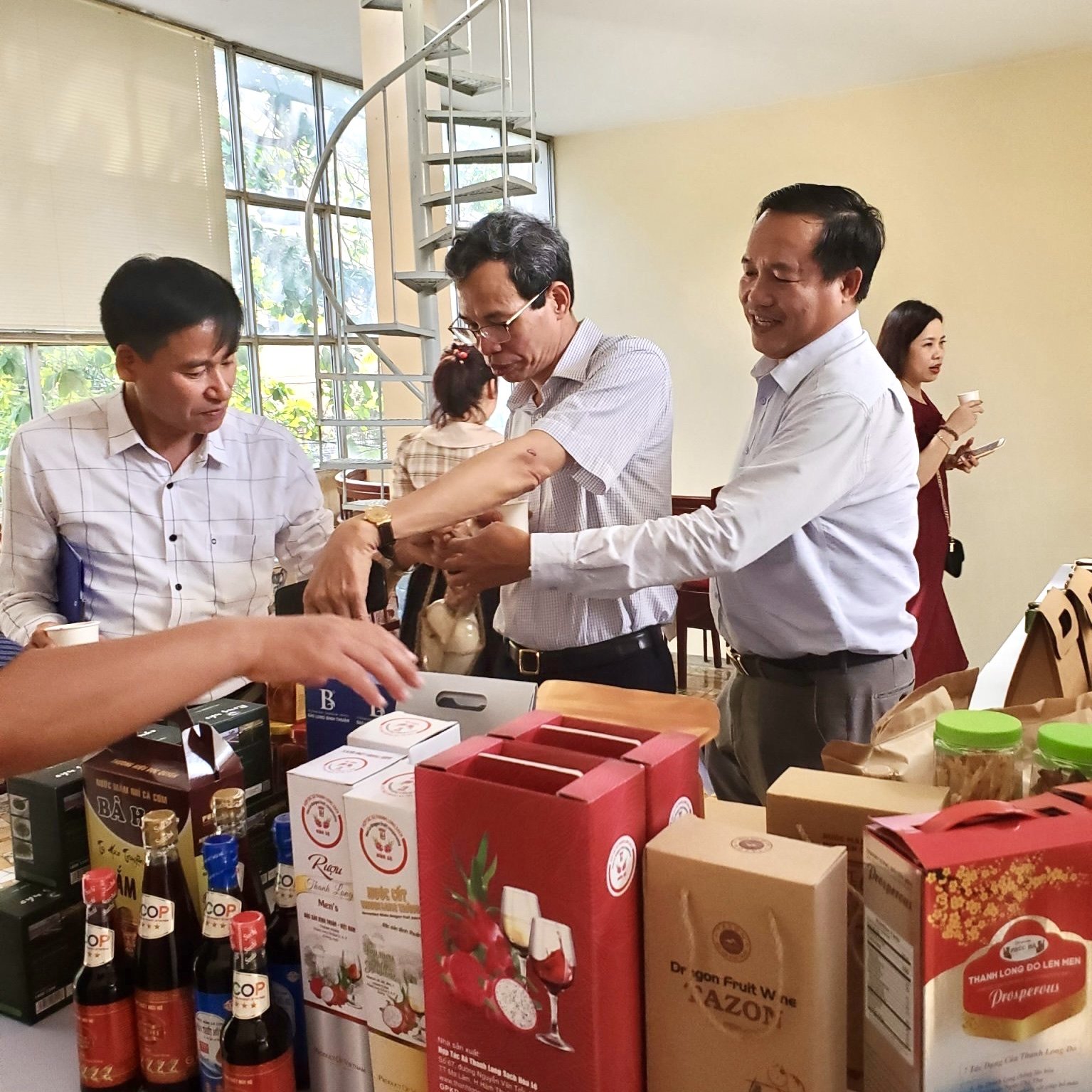May 24, 2025 | 16:25 GMT +7
May 24, 2025 | 16:25 GMT +7
Hotline: 0913.378.918
May 24, 2025 | 16:25 GMT +7
Hotline: 0913.378.918

It is imperative to elevate product quality to foster the sustainable growth and expansion of the dragon fruit sector. Photo: M.P.
In order to ensure the sustainable development of dragon fruit production in Binh Thuan province in the face of prevailing challenges and obstacles, collaboration and coordination take on paramount importance. Ms. Ho Thi Bach Hoang, Director of the Ham Kiem Dragon Fruit Cooperative in Ham Thuan Nam, Binh Thuan province, underscores the constant challenges faced by dragon fruit farmers in terms of market outlets, and considerably low prices. Consequently, there is an imperative need for cooperative efforts and close coordination among cooperatives and production businesses. Most notably, large-scale businesses must foster an enabling environment to support the sustainable development of small-scale cooperatives and cooperative groups, thereby providing dragon fruit farmers with a secure and reliable production chain.
According to the Department of Crop Production, despite the establishment of concentrated dragon fruit production areas in Binh Thuan province, the prevailing challenge lies in the fragmented nature of production characterized by small-scale and disjointed operations. Import requirements pertaining to food safety and origin traceability, as stipulated by importing countries, has grown increasingly stringent over the years. As a result, one proposed solution for sustainable development entails local governments continuing their support for the establishment and enhancement of organizations and cooperatives. This support encompasses the expansion of safe production areas, certification processes, and the provision of training and technology transfer for advanced agricultural practices, including crop rotation and pest management.
The expansion of dragon fruit production areas is not necessary to maintain Vietnam's market share. On the other hand, strategic collaboration with specialized research units must be considered to convert underperforming production areas into more productive alternatives. Furthermore, exploring the utilization of dragon fruit in cosmetic production represents another viable avenue for consideration.
According to Mr. Nguyen Thanh Binh, Chairman of the Vietnam Fruit and Vegetable Association, the dragon fruit sector can only continue its sustainable development with the help of government policies supporting businesses and farmers in infrastructure and machinery investment. Additionally, farmers must strictly adhere to import market regulations. Additionally, dragon fruit farmers should concentrate their efforts on nurturing existing farms to enhance quality, thereby enabling them to compete effectively with dragon fruit from other countries. Further research into cultivars and cultivation techniques is also required, with specialized agencies focusing on the development of new high-quality cultivars in tandem with existing ones.

In order to develop a sustainable dragon fruit market, farmers must enhance the quality of good agricultural practices. Photo: M.P.
According to Mr. Huynh Canh, Chairman of the Binh Thuan Province's Dragon Fruit Association, farmers must adjust their production mindset and proactively assess consumer needs in order to adapt to an increasing demand for quality. According to Mr. Canh, there is a need to gradually transition from VietGap-compliant to GlobalGap-compliant dragon fruit production to expand the export market.
Due to the substantial costs of this transition process, Mr. Canh expressed hopes that the government and scientists can provide support to farmers and businesses by covering a portion of the expenses with regard to new dragon fruit varieties and logistics. He emphasized that the Binh Thuan dragon fruit has been recognized by the Provincial People's Committee as one of the province's four key strategic products, and by the Ministry of Agriculture and Rural Development as the leading specialty fruit among 11 types of fruits in the development strategy for Vietnamese vegetables, flowers, and fruits.
"In May 2023, Binh Thuan province had the honor of receiving the Asia Record for dragon fruit. Thanks to its unique soil and climate characteristics, the province has been producing high-quality dragon fruits to supply the Asian market. With the goal of developing a sustainable dragon fruit market, farmers need to adhere to good agricultural practices and promote the distinctive qualities of this fruit," added Mr. Huynh Canh.
According to the Southern Horticultural Research Institute, the increasing supply of goods in the domestic Chinese market will impact Vietnam's consumption of main-crop dragon fruit. Consequently, there is a need to promote changes in the economic mindset within the agricultural sector and establish cooperative mechanisms among the three provinces of Binh Thuan, Long An, and Tien Giang for seasonal regulation. This effort should be combined with inter-agency collaboration between state management agencies in the provinces and cities engaged in dragon fruit production. These activities will help address the issue of surplus and shortage in production as well as establish a stable supply and demand. Prioritizing businesses as the spearhead of production, and subsequently building sustainable supply chain linkages are essential. Moreover, businesses should be encouraged to engage extensively in product consumption supply chain linkages through signed contracts and invest in raw material areas.

Binh Thuan province needs to diversify processed products derived from dragon fruit to enhance its value. Photo: M.P.
On the other hand, it is essential for dragon fruit farmers to focus on selectively breeding high-quality and suitable new varieties. Maintaining and expanding the application of good agricultural practices, and production unit and packaging facilities codes in accordance with the goal of establishing linkages with businesses is a fundamental approach to addressing production challenges, enhancing origin traceability, and ensuring product quality control. Subsequently, this approach will meet the technical barriers to importing goods.
Additionally, the Southern Horticultural Research Institute recommends a rational restructuring of input costs to reduce production expenses, stabilize income, and improve the competitiveness of products. Furthermore, farmers should be encouraged to cultivate dragon fruit with an emphasis on multi-value, minimizing risks, and increasing income per unit of area.
According to Mr. Phan Van Tan, Deputy Director of the Binh Thuan Province's Department of Agriculture and Rural Development, the sustainable development of Vietnam's dragon fruit industry requires stakeholders to reorganize production, establish large-scale specialized dragon fruit production areas, apply advanced and organic technologies, enhance quality, and reduce investment costs. Additionally, coded dragon fruit production areas and packaging facilities within the province must be closely monitored, and non-compliance with production unit or packaging facility codes must be promptly addressed.
Translated by Nguyen Hai Long

(VAN) The People's Committee of Tra Vinh province has approved an adjustment to the investment policy for the Green Hydrogen Plant project, increasing its area to approximately 52.76 hectares.
![Reducing emissions from rice fields: [2] Farmers’ commitment to the soil](https://t.ex-cdn.com/nongnghiepmoitruong.vn/608w/files/news/2025/05/05/dsc08881jpg-nongnghiep-140632.jpg)
(VAN) Clean rice cultivation model in Thuong Tan commune, Bac Tan Uyen district, is assisting local residents in achieving sustainable agriculture by substantially reducing costs, increasing productivity, and protecting the environment.

(VAN) At the conference to disseminate Resolution No. 68, AgriS introduced its digital agricultural ecosystem and reaffirmed its commitment to accompanying the Government in promoting private sector development and sustainable agriculture.

(VAN) 'Blue Ocean - Blue Foods' initiative is designed to restore marine ecosystems and establish sustainable livelihoods for local communities by cultivating a minimum of 1,000 hectares of cottonii seaweed in the first three years.
/2025/05/21/4642-3-112707_603.jpg)
(VAN) The V-SCOPE project has made direct contributions to three out of six pillars of the Comprehensive Strategic Partnership between Vietnam and Australia.

(VAN) Facing the threat of rabies spreading to the community, Gia Lai province urgently carries out measures to vaccinate dogs and cats on a large scale.

(VAN) Disease-free livestock farming not only protects livestock herds but also stabilizes production and livelihoods for many farmers in Tuyen Quang.